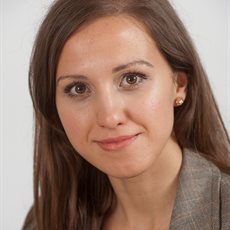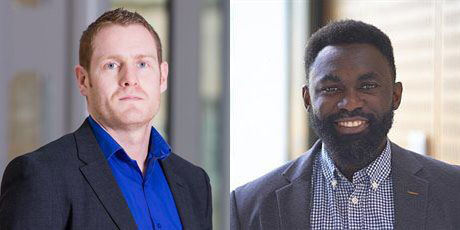About WIRC
The Work Inclusivity Research Centre (WIRC) is a dynamic community of researchers and partners who are committed to the critically engaged study of issues of equality, diversity and inclusion in employment, and who are guided by principles of social justice. WIRC is based within Birmingham Business School but includes colleagues from across disciplines such as sociology, economics, industrial relations, and psychology.
Key stakeholders speak at the WIRC launch event
Diversity and Inclusivity within Organisations
This stream involves researchers who study the individual experience of diversity within organisations and across the career pipeline: occupational gender segregation; social mobility and access to the professions; the gender pay gap; the experiences of disability and inclusion; managing an ageing workforce; time use and well-being; and the take-up and experience of shared parental leave.
Inclusive Labour Governance and Employee Voice
This stream examines the concept of inclusivity from a critical, sociological perspective. It includes researchers with an interest in shifting patterns of labour governance and the sociology of work including: conflict and resistance; employee voice, silence and industrial democracy (including the role of trade unions, management labour workplace partnerships, worker directors and employee-owned enterprises); the regulation of employment; the living wage; and ethical HRM practices.
Trust and Workplace Dialogue
Trust within and between organisations has been shown to be the lubricant which enables business to function. In organisations where there are high levels of trust, employees are more productive and collaborative, have more energy and are more likely to stay longer. Arguably as important, if not more so, they are also more likely to be happier in the workplace and in their lives generally.
In the Business School’s Workplace Inclusivity Research Centre, the Trust research stream explores issues of employee trust and distrust both within and between organisations as well as between organisations and those who interact with them. Within our work, trust is defined as the willingness to become vulnerable to another based upon favourable expectations of their intentions and behaviour. This trust is demonstrated through a risk-taking act.
The conceptual and empirical research in the trust stream advances our understanding of the role and dynamics of trust and distrust, its development in organisations and its impact on both those in the workplace and those who interact and engage with them.

Work, well-being and labour market inequalities
Well-being at work is increasingly recognised as being central to the health of individuals, organizations and society. This stream of research aims to develop our understanding of, and the factors influencing, well-being at work including conducting research into job quality and good work, work-life balance and flexible working including remote and hybrid working, relationships at work, commuting, job security and multiple job holding, and patterns of working hours including evidence of overwork and its impacts.
This workstream recognises that there are inequalities in workplace well-being and workers can be disadvantaged in relation to a range of work-related characteristics and circumstances. To address these labour market inequalities, this stream conducts research using sector, regional, national and cross-country level data in order to quantify inequalities in labour market outcomes and investigate their causes and consequences. Differences in income, earnings, employment participation and job quality by gender, ethnicity, disability, age and nationality are a particular focus.
Our work provides new empirical evidence on well-being and inequalities in work and extends to developing frameworks and tools to inform organizational strategy and practice.

WIRC Teaching and Learning Lead – Dr Caroline Chapain
Lecturer in Economic Development & Education Lead, Department of Management
 Caroline is a Lecturer in Economic Development. She is particularly interested in researching how the creative economy can support the development of cities and regions taking into account the complex interplay between the economic, social, environmental and policy dynamics of creative ecosystems. In addition, Caroline is the Education Lead for the Department of Management at the Business School and the Teaching and Learning Lead of the Work Inclusivity Research Centre. In these capacities, she is promoting the development of scholarship and implementation of inclusive management education and learning practices within higher education and more widely. She is also a member of the College of Social Science Wellbeing Taskforce.
Caroline is a Lecturer in Economic Development. She is particularly interested in researching how the creative economy can support the development of cities and regions taking into account the complex interplay between the economic, social, environmental and policy dynamics of creative ecosystems. In addition, Caroline is the Education Lead for the Department of Management at the Business School and the Teaching and Learning Lead of the Work Inclusivity Research Centre. In these capacities, she is promoting the development of scholarship and implementation of inclusive management education and learning practices within higher education and more widely. She is also a member of the College of Social Science Wellbeing Taskforce.
The role of the teaching and learning lead is to:
- Promote the development of scholarship on inclusive and diverse management education and learning practices within higher education institutions and organisations;
- Support the awareness and implementation of inclusive and diverse learning and teaching practices within the Business School;
- Work in collaboration with colleagues across the WIRC research areas to facilitate the transfer of research findings into learning and teaching activities within the Business School programmes and any other related higher education and organisational training.
WIRC brings together academics from a wide range of disciplinary perspectives and backgrounds to create one of the leading centres for inclusivity research in the UK. We work with key partners to coproduce research that is both academically rigorous and implementable in strategic decision-making at all levels of business practice; we also actively work to have a positive impact on policymaking and wider society.
In order to conduct fully-informed and relevant research, we engage with organisations of all types: from the largest multinationals to small entrepreneurial start-ups; from social enterprises to special interest groups, professional organisations and large governmental employers. WIRC researchers also have extensive expertise in using both qualitative and quantitative methods.
Equal Parenting Project
Fathers in the Workplace Toolkit launches
Taking Shared Parental Leave - Kabir's experience
Ministry of Defence Inclusivity Project: “Defence Inclusivity: The Lived Experience”
Dr Etlyn J. Kenny & Professor Jo Duberley are undertaking a large-scale qualitative study to explore the ‘Lived Experience’ of females and BAME personnel working in the Ministry of Defence (MOD). The aim of the study is to better understand the experiences of these individuals (in comparison with the white, male majority) to inform further actions to improve the representation of these minority groups across MOD. Practitioners in the field have recognised the considerable scale and ambition of the study, which incorporates data from over 600 personnel across the three Armed Services and Civil Service in the UK; from this, they expect to garner valuable sociological insight of use to large-scale military organisations.